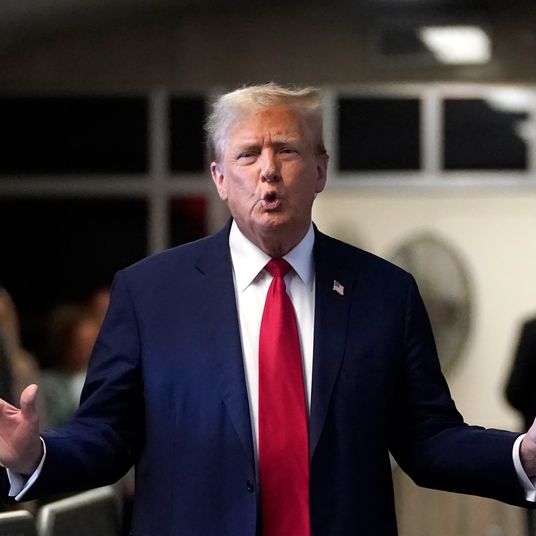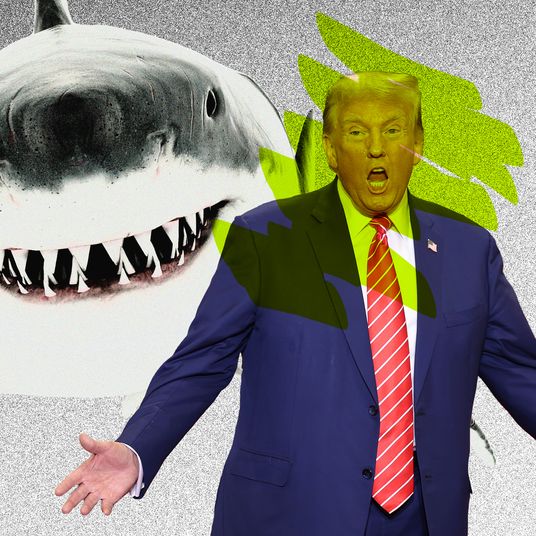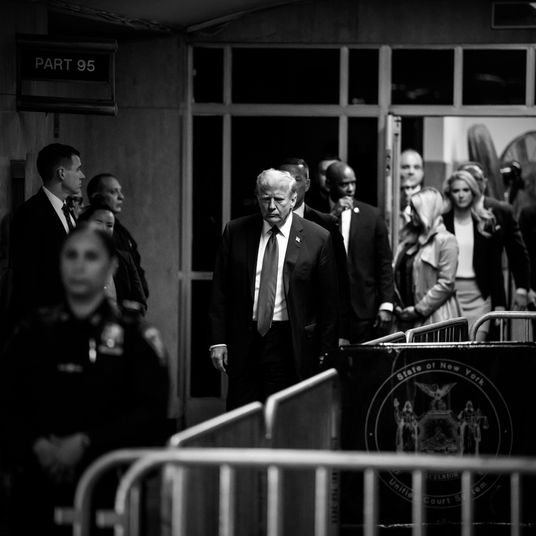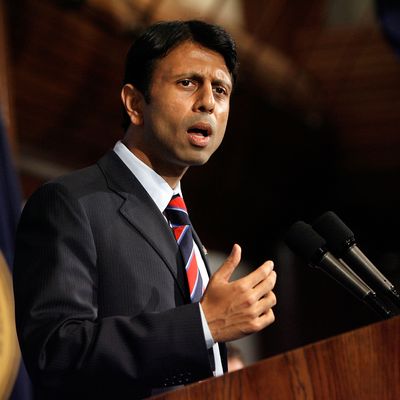
The sudden revelation that Obamacare’s health exchanges had exceeded their projected enrollment threw the Republican Party into a sudden strategic crisis. Having bet everything on the certainty of collapse, now the Party faced the prospect that the law would work more or less as intended. Conservatives like Ross Douthat and Ramesh Ponnuru urged the Party to accept the new reality and build a health-care policy that didn’t require suddenly throwing millions of people off their insurance.
This moment of confusion and flux turned out to be a perfectly opportune moment for Bobby Jindal. In an act of exquisite timing, Jindal was releasing his own health-care plan (of sorts) and promoting it to Washington conservatives, and he used the moment to position himself as the spokesman for reactionary irredentism. The sudden opening of political and moral sanity within the party created the perfect foil for him to push against and demand the opposite. Jindal would continue to insist on a full repeal of Obamacare, would not offer anything remotely comparable in its place, and oh, by the way, might run for president. (“I’ve said it’s something I’m thinking about. But right now, I’m focused on winning the war of ideas.”)
Now, about those ideas. Conservatives had invested heavily in the idea that the Affordable Care Act would flounder. The GOP’s ability to unite on the (apparent) practical failure of the law allowed it to paper over any decision about the practical alternative — they knew it couldn’t work, so why bother deciding if any of it should work?
It turns out not all Republicans have any practical qualms about throwing millions of Americans off their insurance (let alone moral qualms). William Kristol, for instance, has seamlessly transitioned from mortal certainty that the law will die to mortal certainty that Republicans must kill it. Jindal forthrightly told Washington conservatives Wednesday that they cannot shrink from fear of eliminating access to medical care that Obama has created:
“I do think it’s a mistake if we say that we can’t take back what Obama’s already given …
That’s the attack from the Left obviously, that once you’ve given stuff to folks, once you’ve expanded a program, you can’t cut it back. If as conservatives we concede that, we’re done. We’re done as a country and we’re done as a conservative movement.”
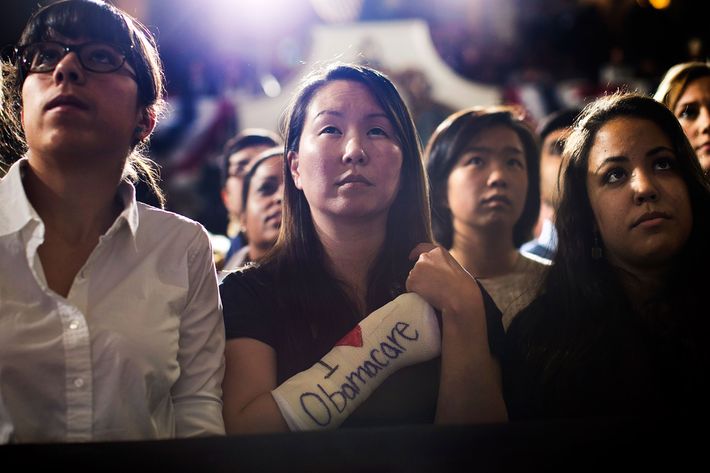
To be sure, there is more to Jindal’s plan than to repeal Obamacare and then drink cocktails made from the tears of the uninsured. But there isn’t much more. Jindal proposes to tinker with the tax treatment of health benefits, but without going far enough to either provide real funds to purchase insurance to individuals or to disrupt employer-based insurance. There’s the usual bit about letting insurers sell plans across state lines, which means letting the state most willing to allow insurers to cherry-pick healthy customers set national regulatory standards. He urges a focus on cost containment, which was a mantra of Republican opposition to the bill in 2009 and 2010, and had faded since health-care inflation has fallen to a 50-year low. Citing cost containment as the rationale to repeal a law that has at best created, and at worst coincided with, the most positive cost containment news in modern history is more than a bit perverse.
The only unique element of Jindal’s plan is a $100 billion grant program (over the next decade) to states to “come up with insurance reforms and other solutions that can stem the rising tide of health costs.”
Is $100 billion a lot of money? No, it is not. It’s 1/20th the size of the coverage provisions in Obamacare. It could finance coverage for no more than a token few. The role the $100 billion plays is a kind of magic wand that allows Jindal to pretend that states will come up with some kind of solution to all our problems at a cost of 0.2 percent of the federal budget (my figure, arrived at by dividing $100 billion by the projected $47 trillion in federal outlays over the next decade).
Jindal, trying to maintain his wonk credibility, presents his hand-waving, kill-’em-all-and-let-the-states-sort-’em-out gesture as a detailed proposal: “I think there are some smart political folks in this town who think the best course is just to be against Obamacare until November and don’t propose anything specific,” he says, “And I think that’s a mistake.” Meanwhile, Republican economic adviser Douglas Holz-Eakin, in the course of defending Jindal, admits he doesn’t have enough details to amount to a real plan: “There is no advantage in putting forward details at this point. It will just get picked apart.”
Details, obviously, have little to do with the basis for Jindal’s positioning. A plan that would have seemed vague and unappealing a week ago is now a firm clarion call for opposition. Jindal will give no quarter to the poor and sick. Bad news for Republicans may turn out to be very good news for Bobby Jindal.







